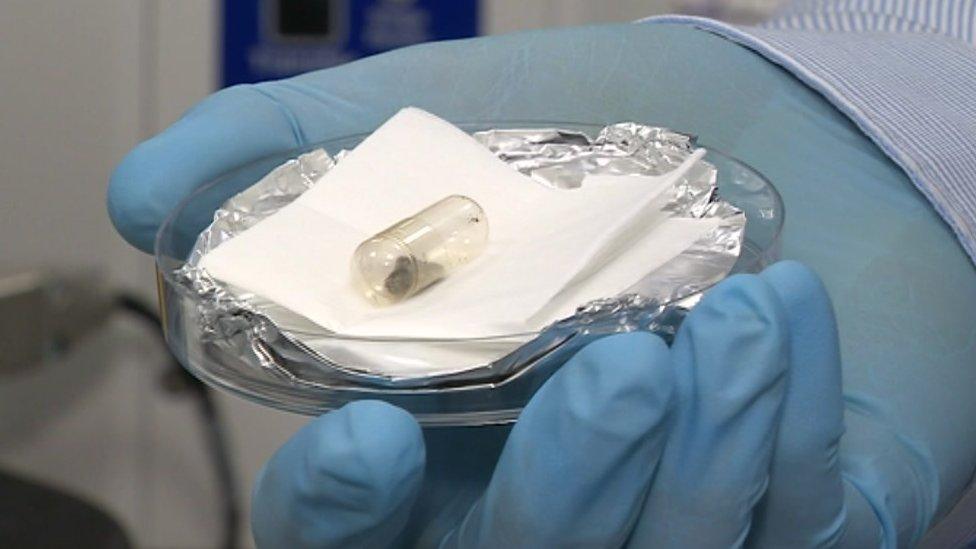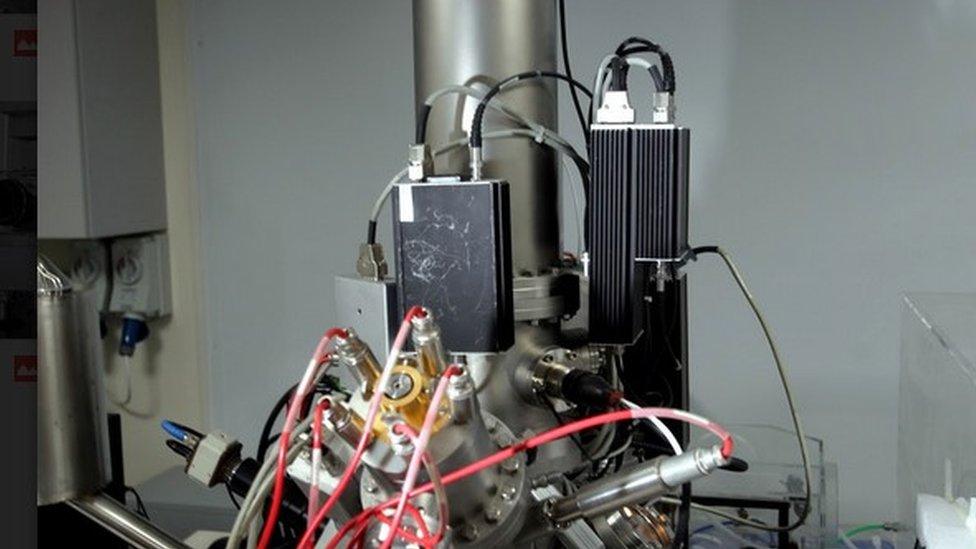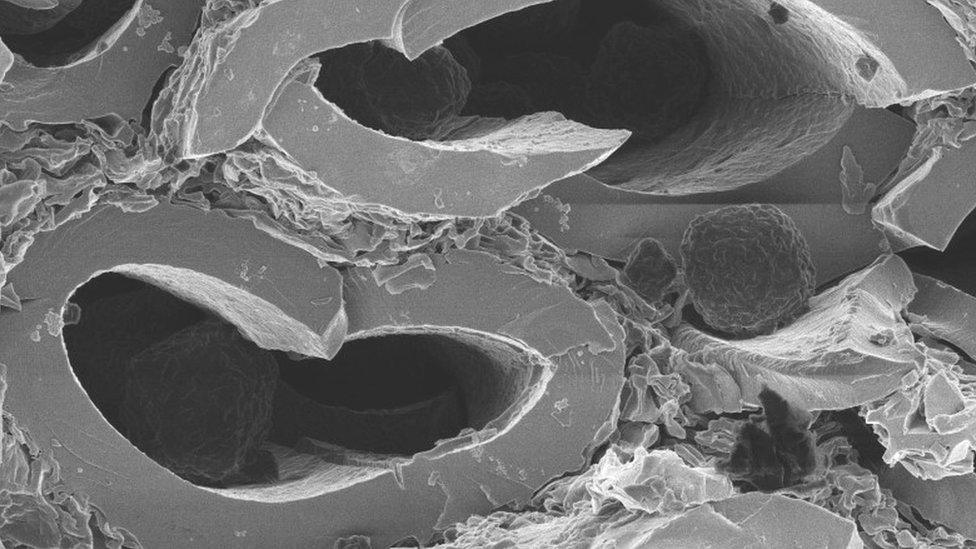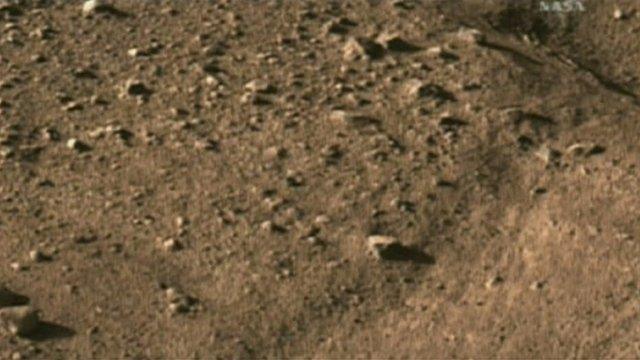Newcastle University lab hopes to find life on Mars
- Published

A fragment of rock from Mars will be examined with the microscope
Scientists believe they could be a step closer to finding out whether there was life on Mars.
A high resolution microscope at a £7m new laboratory at Newcastle University has found evidence of microbes in 400-million-year-old basalt rock recovered from the Pacific Ocean floor.
The rock is similar to those found on Mars and scientists will now study an actual piece of Martian rock.
It is hoped that the detailed analysis will detect similar traces.

The £1.5m microscope is believed to be the only one of its kind in Europe
The team at the Surface Engineering and Analysis Laboratory used a £1.5m Helium Ion Microscope, which analyses the surface of structures with a resolution five times higher than most other microscopes.
It identified organic compounds in microscopic tunnels in basalt recovered from the Ontong Java plateau deep in the Pacific.
The compounds are believed to be finger-like tubule structures made by microbes millions of years ago, and have never been analysed so closely by scientists, the university said.
Head of the laboratory, Prof Peter Cumpson, said: "What we have detected is the trace left behind by living systems: the biological fingerprint which even after 200 million years is still visible, albeit only with a very, very good microscope.
"If we can find those in this [Mars] rock and we can compare with the earth samples then I think we have made a big step - a very convincing step - forward which shows that at one time life - a simple life - was present."

Compounds believed to be structures made by microbes millions of years ago, were found in basalt rock recovered from the Pacific Ocean floor
- Published10 October 2016

- Published29 September 2015

- Published17 June 2015
